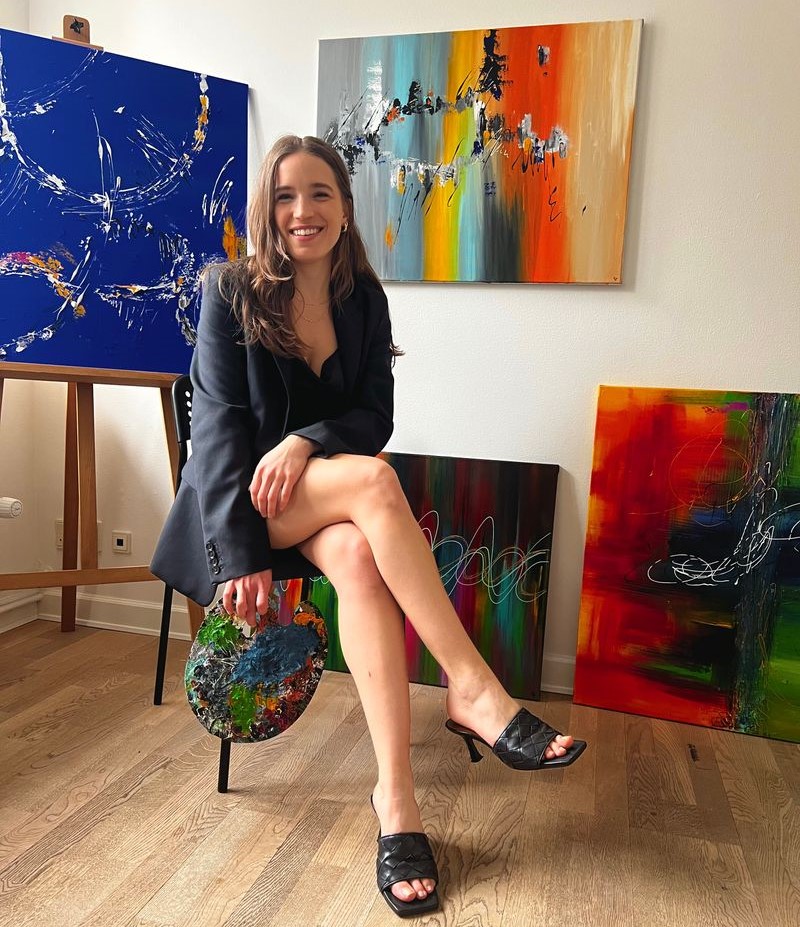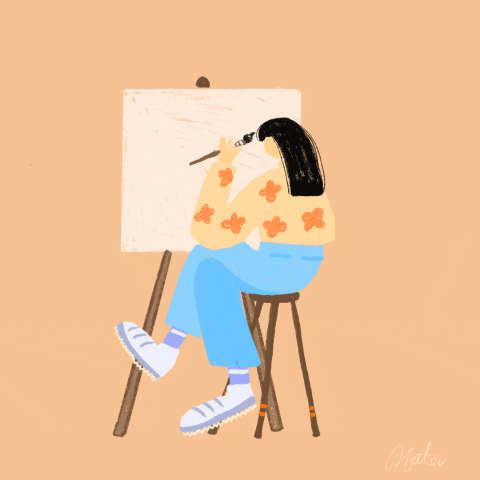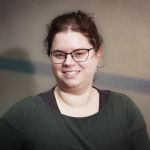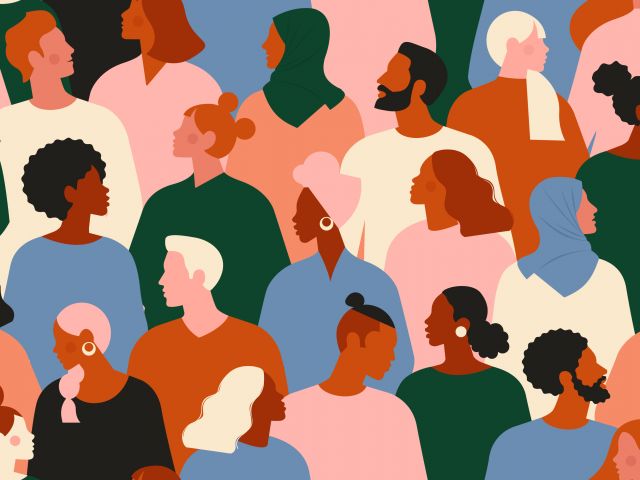CBS BIO master’s student hopes her art will spark an interest in science

Maja Völker hopes to make people interested in science through her colourful paintings, Photo: Sara Van Weerden
Science can be difficult to comprehend. Master’s student Maja Völker is creating eye-catching paintings with scientific motifs that capture the imagination and will be exhibited at Villa Kultur on Saturday 29 April.
Last year, in a University of Copenhagen lecture hall, Maja Völker found that her mind was straying because she did not fully grasp what her lecturer was saying. If she, a student in bio-entrepreneurship did not understand, non-scientists would have no chance. But there had to be a way to make a difficult topic such as science relatable, relevant and understandable for those not in the field, she reasoned. Enter: her hobby – painting.
“I wanted to make art that would grab people’s attention and make them curious to learn more about the paintings first and then the science behind them,” Maja Völker explains. She is in her last semester of her master’s degree in business administration and bio-entrepreneurship, which is a combined master’s with courses both at the University of Copenhagen and CBS.
She reached out to CBS Art in September 2022 about her idea and has since created four paintings on topics such as DNA modification and biosensors. The paintings will be exhibited at Villa Kultur on 29 April 2023 from 4-8 pm. At 5 pm, Maja Völker will give a talk explaining the science behind the paintings. She will also create a self-study booklet.
“The exhibition is aimed at people who know nothing about science. I believe that science is not difficult to understand if someone takes the time to explain it to you properly,” she says.
Different painting processes than usually
Maja Völker has been painting since childhood, but during COVID, she started painting more and putting the results on Instagram. To her surprise and delight, she received messages from people wanting to buy her art and it has now grown into a side income for her.

Art Illustration GIF By Itsrach, Giphy
Normally, she paints what comes to mind but with the paintings for the exhibition, she planned the paintings a bit more. She found herself using brighter colours than usual because she wanted to capture people’s attention. The painting depicting biorefinery, which was actually inspired by a specific course, is a case in point.
“The painting shows biorefinery in plants. With biorefinery, it is possible to extract compounds such as fibres, protein, or cellulose from different compartments of a plant. I made a line down the painting to show the extraction and then the two sides in contrasting colours to show the differences between them,” she explains about her process.
Biorefinery is an important process in creating biofuel, for example. It adds to sustainability and preventing climate change, which are other important reasons why Maja Völker wants to make people curious about science through art.
“Science will play a major role in solving some of the problems that we face in the future, like feeding society,” she says.
From scientist to businesswoman to artist
Maja Völker has a bachelor’s degree in biology from her home country, Germany. All along, though, she felt that it was not exactly the right shelf for her. When the other students were talking dreamily about taking PhDs, she was researching other uses for her bachelor’s degree in biology. She stumbled across the master’s programme Business Administration and Bioentrepreneurship, which combines science with business, and immediately felt it would be a good fit for her.
“I find that often scientists are not interested in the business side of things and spend as much time in the lab as possible, and that businesspeople are equally uninterested in understanding the science. With this master’s degree, I can bridge that gap, since I understand both the science and the business side of a company,” says Maja Völker, who is currently writing her master’s thesis in collaboration with the BioInnovation Institute.
She is very happy with her choice of master’s degree, since everyone shares her mindset: they want to work with science but not actually do the science themselves. She hopes, when she finishes, to work in pharma, or a startup focused on biotechnology or sustainability.
“Or who knows, maybe I should give being artist a real chance? I am young and I have no responsibilities, which would make it the perfect time for me to do so. It was so unexpected for me that people are interested in my art: I definitely did not imagine that by studying science I would one day become an artist.”

































































































































Comments